Embarking on the journey of maintaining a saltwater reef aquarium is a commitment that promises both challenges and rewards. As enthusiasts delve into the realm of coral care, questions inevitably arise: Liquid or pellet coral food? What nutrient sources are essential for SPS corals? Do LPS and soft corals require different nourishment? These questions, while common, can be daunting to answer. In this article, we explore five top-rated coral foods and supplements, answering these questions and more!

Saltwater reef aquariums are the epitome of the hobby. It takes a lot of hard work and dedication, but caring for such a complex ecosystem is highly rewarding.
An initial foray into the research for achieving optimal growth results, however, can lead to a lot of questions.
Would it be best to go for a liquid or pellet coral food?
Further diving into the subject will lead to concerns like what nutrient sources do SPS corals need to feed on to thrive?
Do LPS and soft coral reefs need different nourishment sources?
How about Zoanthids and are they pretentious about their daily sustenance?
All of these are valid and common questions, and it can be difficult to know the right answers.
After spending way too much time experimenting with my own tanks, and with no small advice from friends I think I finally have a bit of a handle on some of the matter.
I think we can narrow most of this down to simply asking one thing.
What are the best LPS or SPS coral foods if fast and healthy reef growth is the aim of your aquarium?
Let’s get to it.
5 Top-Rated Coral Foods
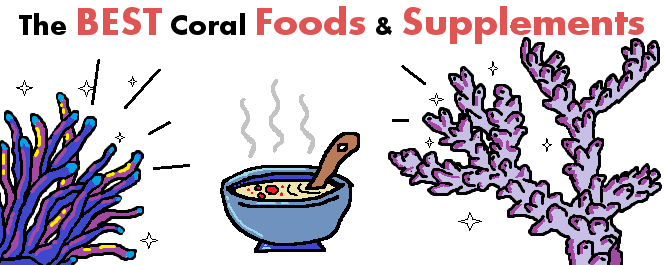
Check out the quick overview table comparing the best of coral foods:
| Food name: | Type: | Recommended for: | Price Bracket: |
|---|---|---|---|
| 1. Red Sea Reef Energy | Liquid | Mixed coral reef aquariums | $ |
| 2. Reef-Roids | Powder-ish | SPS dominated coral reef tanks | $ |
| 3. Coral Frenzy | Pellets | LPS corals | $$ |
| 4. Benereef | Powder | Reef aquariums with mixed corals | $$ |
| 5. Brightwell Aquatics Coral Amino | Liquid amino acids | Mixed reefs but all systems in general | $$ |
What to look for when choosing the right one for your setup?
Before picking out a food supplement you need to be sure you’re purchasing the best one for your corals’ exact needs.
There’s a ton of research I went through when I was first starting out with reef tanks, but the gist of things to look out for can be narrowed down in this buyer guide:
1. Water Degradation
Adding additional nutrients into a closed system can be problematic if it’s not accounted for in the formulation of the feed.
One way to ensure that your coral feed won’t be the cause of this is to check for its effect on water degradation:
Look for foods that, at the very least, give recommendations on how to handle excess nutrients in the water. This becomes more of an issue with foods that are designed for non-targeted feeding. Such products handle an array of coral types and aquatic life, but excess food is excess food. If the supplements go uneaten, then problems with a surplus of nutrients can arise.
The responsible manufacturers out there do their research and extensive testing before releasing a product on the market.
I made sure to review foods that are safe upon usage that follows the directions.
As it turns out it’s all about the balance.
2. Liquid VS Pellet Foods
Using the wrong type of food on a coral colony is a one-way ticket to fish tank problems and poor results.
Make sure you know the kind of coral a product caters to when deciding between liquid vs pellet foods:
Pellets provide a lot of condensed nutrients that can be targeted directly at the coral colony you wish to feed. However, the size of pellets limits this to mostly LPS corals as their mouths are larger. Liquid foods work well on both types and even some types of marine fish but tend to dilute quickly within the water column. This makes it harder to target-feed the hungrier LPS corals with a liquid form of nutrition without creating a nutrient-dense environment in your aquarium.
It has been my experience that having an LPS-dominant coral reef aquarium will benefit the most from larger particle foods such as pellets.
I will explicitly mention which brand is best for which setup in my reviews below for your convenience.
3. Broadcasted or Targeted
Coral food tends to be designed for a specific type of feeding, even if instructions exist for both types.
Be sure to check whether a food is meant to be broadcasted or targeted for optimal results.
Here’s what you should know:
Coral foods designed for broadcast feeding usually dilute through the water table, aiming to feed all of the denizens of an aquarium. Targeted foods, on the other hand, are best fed directly to the coral through a syringe, directly falling down on it, or through other similar mechanisms. The broadcasting method is easier, though overfeeding risks are increased while targeting takes a lot more hands-on effort.
Note that “increased risk of” does not imply that it will certainly happen.
As long as it’s the right kind for the coral life in your tank, rest assured that you won’t regret the purchase.
4. Nutrient sources
Just like you, your reef cares about what it is about to eat.
In the wild corals get their nutrients from all kinds of places, including seabird waste.
Be sure to choose food with the proper ingredients for the type of corals you are caring for:
In a natural environment, corals eat an array of different types of bacteria, plankton, even small animals. The problem in a fish tank comes with replicating the massive variety that the ocean offers.
Without all, that choice available one needs to be careful about what sources of nutrition they add to the reef tank as certain corals simply can’t take great advantage of certain foods. Amino acids, simple food particles, and phytoplankton work well for SPS corals. Zooplankton and larger food sources should be left for LPS coral polyps and zoanthids.
What’s the Best LPS and SPS Coral Snack for Optimal Growth?
With the number of brands out there, all proclaiming themselves the best, it takes a bit of doing to figure out which coral food is actually good.
Corals do need an external source of nutrients for reaching optimal growth as their nutritional requirements are not 100% satisfied by photosynthesis.
I’ve had to go through these myself, and it can be quite a slog.
For the benefit of my reef tank, I’ve checked out quite a few different brands.
Have a look at the five best foods for corals on the market:
1. Red Sea Reef Energy AB+ – Fantastic all-around supplements for reefs
Click here to see the current price + more photos on Amazon.
This one is probably the simplest to use on the list, which I like.
The concept here is to help boost the naturally occurring micro-fauna that already covers your coral.
This is done without adding a lot of additional organic material to the reef aquarium with the supplements used as a two-part system.
When I first added this into the tank I noticed polyp extension pretty much immediately in my setup, so I like to think that’s a good sign.
I didn’t have any issues with clouding, or anything like that, but I was using it fairly sparingly as this stuff seems to be extremely concentrated.
Ensure that you math out the ratio to tank size correctly, as I could see some issues in this department cropping up if being careless.
It adds some important vitamins and amino acids into the system that help with coral growth.
Corals can synthesize a portion of essential amino acids on their own, however, this requires lots of saved up energy on their side.
So, being very adaptive organisms, they actually prefer not to do so and extract the acids from their environment.
Simply put, Red Sea Reef Energy B aids in the recreation of the conditions that help coral thrive.
Amino acids in this form help with better coral coloration, which has been the case in my coral reef aquariums as well.
Red Sea works well in reef tanks with both LPS and SPS types, and the simplicity of the system is why I think it’s a contender for the best coral food that comes in liquid form.
Just a bit will do you.
Here’s an illustration of a healthy mixed reef tank where to corals were fed with the Red Sea Reef Energy AB+ supplements:
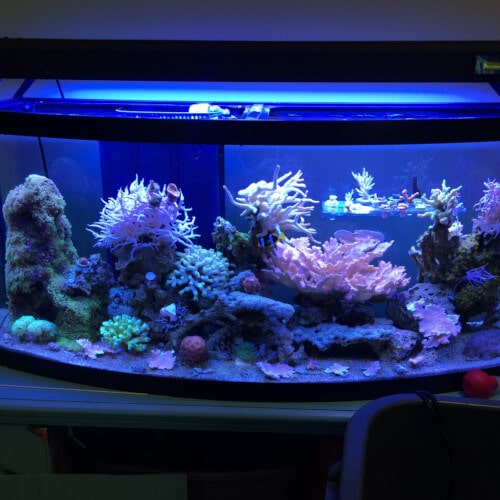
- Simple and straightforward
- Targets specific mechanisms in the coral to improve growth
- Improves coral coloration
- Fantastic for a mixed reef with LPS and SPS corals
- Corals don’t waste metabolic energy to break down the amino-acids (further boosting growth rates)
- Can easily cause issues if overused (just follow the instructions and you’ll be fine, in my experience)
- By targeting all coral types, it loses some of the specific strength of narrower brands (meaning – buy this if you have a mixed reef tank)
2. Reef-Roids – Very popular with many proven SPS success stories
Click here to see the current price + more photos on Amazon.
I can’t review the best food for corals without at least taking a look at Reef-Roids.
It’s widely known in reef circles as one of the greatest for pure growth purposes, and honestly, I’d have to agree. To this day, Reef Roids remains a popular choice among fellow reefers over at the Reef2Reef.com forum.
I was fairly excited to try out this product when I initially had the chance to do so because of the surplus of positive reviews.
The formulation was originally meant for Goniopora corals, which are notoriously hard to keep alive for extended periods of time.
However, most SPS coral species and a lot of invertebrates seem to eat the stuff up.
My initial trial with Reef-Roids was targeted feeding.
I avoided aiming the mixture directly at my coral, but just sort of in front of it, letting the flow from your reef’s powerhead of choice doing the rest.
I fed my corals with Reef Roids twice a week as the instructions advised, which intuitively seemed too little to me.
However, my results quickly proved to me it was more than enough.
Polyp extension was near-immediate and even the fish in the tank seemed excited by the stuff.
This was to be expected, as I had watched some videos of it in action.
I’ve actually been using Reef-Roids for continuously in one of my reef aquariums to this day, as I really just like how excited everyone in the tank gets when I add some.
What can’t be overstated here, though, is the growth rate my corals have been undergoing, month after month.
The food size ranges from 150-200 microns.
If the recommended food size for your reef falls in-between that, there’s not much that can best this food.
There’s definitely something to Reef-Roids.
I recommend getting this if you have an SPS-dominant reef tank and are okay with target feeding.
Pre-mix it with water and spot feed, using a pipette for the best results.
Finally, as a side note, Reef Roids is the coral food I’ve seen works best for soft corals.
My Zoanthids and other softies love the stuff and I would say their polyps have exploded after I started feeding them this food.
The only coral food I’ve seen come close to Reef Roids by effect on soft corals is maybe Benereef.
A photo of a coral reef aquarium that’s been on a Reef Roids diet to check the results for yourself:
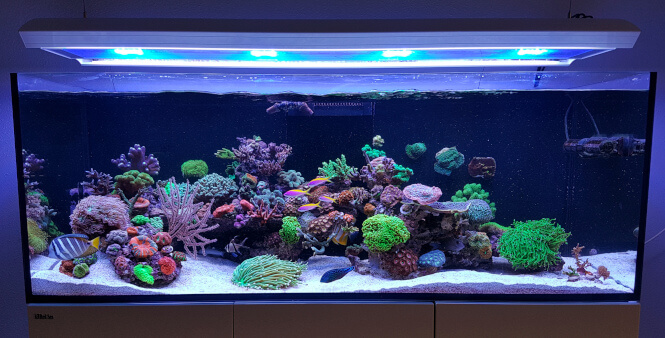
The next tank that’ I’m going to show has won the Reef of the Month award in the Nano-Reef.com monthly display contest.
And here’s the 29-gallon saltwater aquarium dominated by SPS corals, that have been cultivated with the Reef-Roids coral food:
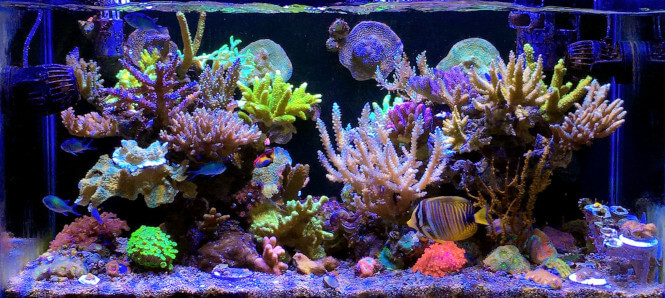
- SPS corals love it
- Proven growth results by many users
- Not too expensive and you get tons in one package
- The powder dissolves easily in the water, improving consumption efficiency
- Coral color will also improve and get more pronounced
- Its strength can be an issue if not used with care (simply follow the recommended dosage!)
3. Coral Frenzy “The Ultimate Coral Food” – Grows Fat LPS corals
Click here to see the current price + more photos on Amazon.
A friend recommended this and I ended up trying it out because I was looking for a better solution for my LPS corals.
I was also interested in testing out some pellet food varieties for my reef tank’s corals.
Coral Frenzy is pretty interesting, it’s obviously not great for filter feeders, but it was pretty cool seeing my LPS corals eat this stuff up.
The pellets themselves work great as a targeted food, be cautious not to add too much in as any excess will just sit on the bottom of the tank.
The pellets aren’t too big, but they definitely are not going to easily dissolve into your reef tank’s water column.
Of the ones I tried, Coral Frenzy definitely sits at the top of the list for the best pellet coral foods out there.
Mostly because they’re full of legitimately good ingredients, and aren’t just crude protein flakes masquerading as something special.
It takes some getting used to if you’ve mostly used powders and liquids in the past, but pellets have their uses for LPS corals and Coral Frenzy is definitely a solid choice.
My large polyp stony corals almost completely deform when they sense the food being sprinkled on them.
It is honestly one of the best LPS coral responses I’ve ever witnessed.
I could almost hear the slurp…
One thing to mention is that you don’t need to follow the recommended dosage here.
Use less than what’s advertised.
This was advice from a friend which I follow and I can’t complain.
The reef gets good growth without spoiling the water parameters.
Get the Coral Frenzy pellets if you’d like to cultivate bulky, beautifully colored colonies of large polyp stony corals in your aquarium.
Here’s a photo progression of an LPS Scoly coral responding fantastically to the Coral Frenzy food:

- Easy to aim directly at coral polyps
- LPS seem to thrive with this
- Quality ingredients with a rich variety
- Won’t dissolve in the water column, making it easy for the LPS to gobble it up
- Excellent value and quantity for the money (in fact, you should even use less than the recommended dose for the best results)
- Sinks quickly, can be an issue if too much collects at the bottom (avoid this by gentle target feeding)
4. Benereef BENEPETS – Best for reef owners concerned with water quality
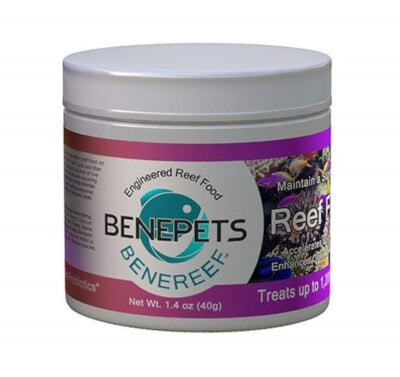
Click here to see the current price + more photos on Amazon.
This is one of the lesser-known varieties on our list here, which was once again recommended by a friend.
That doesn’t mean, however, it should be ignored because the results we both had were quite impressive.
Benereef is best used as a multi-target coral food in reef aquariums that have multiple coral types and filter-feeding organisms.
The goal with Benereef is to target the entire tank.
This means it’s formulated for SPS and LPS coral as well as other invertebrates and fish.
When I tried this out I had immediate polyp extension from my SPS and my fish and shrimp seemed to really love it as well.
Another thing that I noticed, and also see others reporting, is that it’s hard to pollute the aquarium with harmful inorganics with this food.
Phosphate build-up can be a problem with a reef tank, however, with Benereef it does not seem to happen at all.
This is more than welcome when you don’t really want to double up on the feeding time because you need to remove the phosphate after each session.
The food size range is definitely the widest of any we’ve looked at ranging from 3 to 3000 microns.
It’s definitely an excellent choice for anyone trying to feed all their reef tank’s inhabitants in one broad stroke.
Get Benereef if you have a mixed reef that has a history of phosphate buildup events.
And here’s a 1-year growth in a reef aquarium with many SPS corals that were fed with Benereef a couple of times a week:
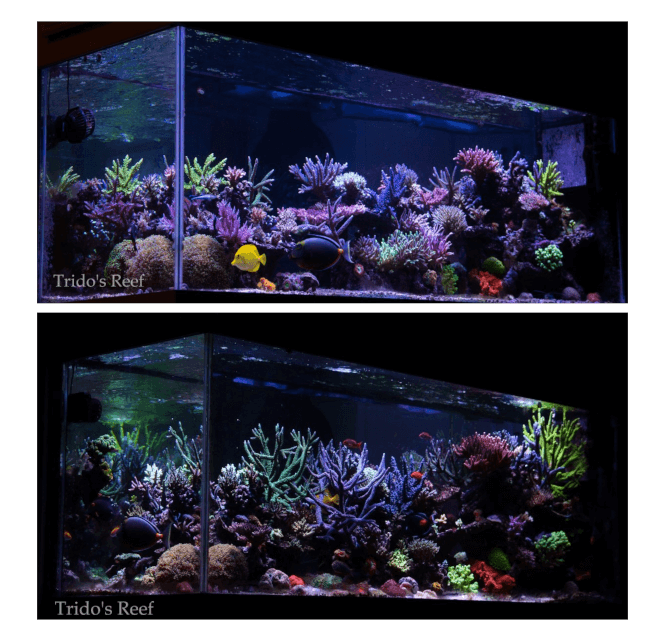
Note that the user have also been feeding with the Acro Power coral food during this time.
This was done to maximize the growth potential of the SPS Acropora species.
Advantages:- Huge array of food sizes, best suiting a diversified mixed reef
- All-in-one solution for coral and certain fish
- You don’t need to perform water changes after a feeding session
- Feeding requires less involvement overall
- Jack-of-all-trades, but master of none
5. Brightwell Aquatics Coral Amino – Easy-use Liquid Amino Acids
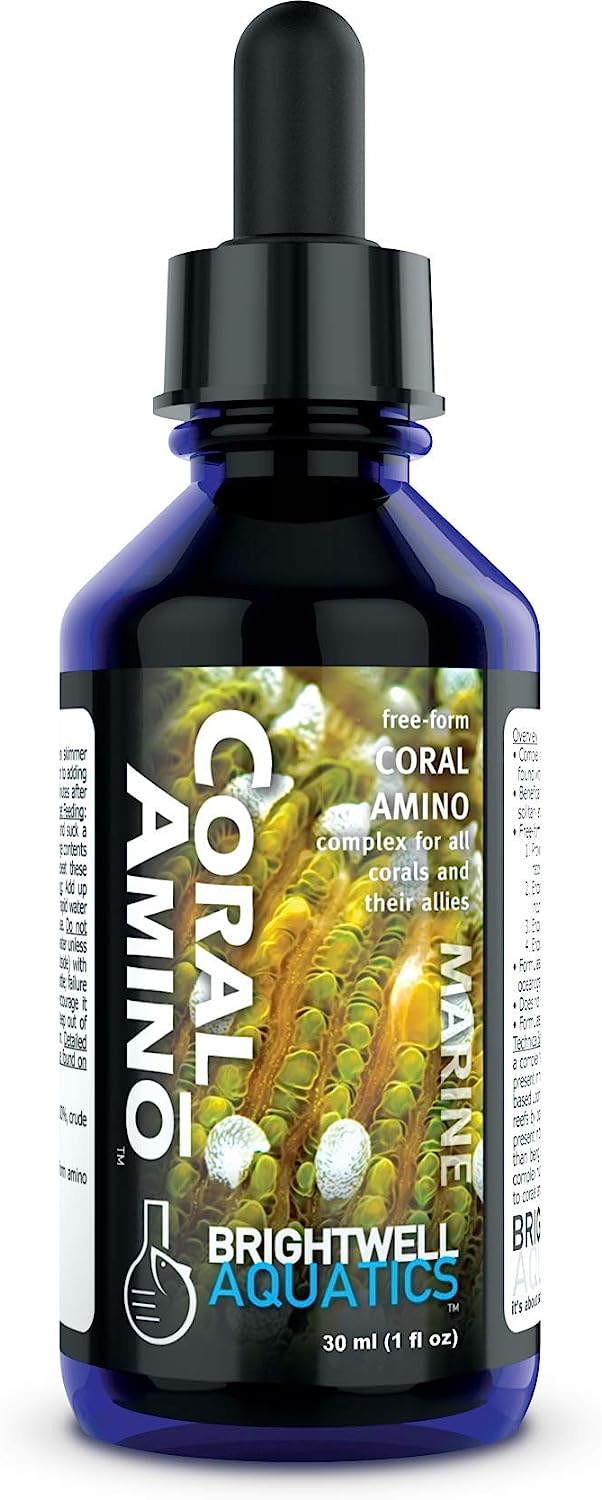
Click here to see the current price + more photos on Amazon.
Brightwell Aquatics have made a bold entrance in the fish keeping hobby in recent years.
Their live bacteria product is, in my opinion, one of the best of its kind and they seem to take their brand seriously.
Brightwell Aquatics Coral Amino is their take on liquid coral food and I have to admit I was impressed when I tested it.
I used it on my established tank and dosed for 4 months in total.
My corals improved their color and grew faster than usual but it did take a 2 to 3 weeks for the effect to take place.
The difference between dosing and not dosing was a significant one so I’m adamant Coral Amino works.
I decided to dose the whole tank as opposed to target-feeding during my tests.
I closely followed the dosage instructions on the bottle.
During my experiment I was only adding Brightwell Aquatics Coral Amino right before lights on.
There are arguments to be made for both dosing before lights on and after lights out.
Ideally, you’d want to feed your corals whenever your schedule allows it.
One thing that I need to mention about this coral food is that my refugium saw some macroalgae growth as well.
I’d assume overdosing could lead to potential algae issues in some reef tanks so you’d want to follow the instructions and not overdo it.
Finally, when it comes to liquid coral foods I’d say I saw a better effect with Red Sea Reef Energy AB+.
Compared to Brightwell Aquatics Coral Amino, Reef Energy offers quite a bit more than amino acids.
So if you think your reef tank only lacks aminos you’d want to go with Brightwell Aquatics Coral Amino.
However, if you want the full menu for your corals, I’d say Red Sea’s Reef Energy mix is the better option.
Advantages:- Essential amino acids that improve the colors of your corals
- The dosing instructions seem spot on, no need to figure this out yourself
- Coral growth will improve
- Did not make a mess for me
- You need to make sure you’re storing the bottle correctly or it will spoil faster
- You don’t get anything besides amino acids for your corals, which makes this a particular use case and not an overall solution for coral food
How Should You Feed Them for Maximum Efficiency?
Properly feeding your corals can seem kind of confusing at first if you don’t know exactly what you’re doing.
Sometimes a coral won’t respond immediately to a new food source.
To ensure you’re doing everything you can do to properly feed corals you should:
- Select an ideal feeding techniques in relation to the food used.
- Briefly turn off the aquarium filter and protein skimmer if target feeding.
- Dose with caution to avoid overfeeding.
- Feed after the daily photoperiod of lighting is over.
Each coral species is different, with some requiring extra care.
The first thing you should do is research deeply into your chosen coral variety to ensure they will respond properly to their food.
Generally, you wouldn’t do this for longer than an hour, just long enough to ensure your coral has an opportunity to feed.
You could leave the powerheads on, and if you go that road, know that a moderate to gentle flow would be optimal.
Use a pipette and follow the instructions on your product of choice (unless mentioned otherwise by experienced users, like in the case with Coral Frenzy).
A good choice of coral feeder tube for target feeding that does not include sticking your hands in the tank would be the Coral Feeder SPS HPS.
What Should you get for an SPS-Dominant Reef Tank?
Even after knowing more about the varieties of food available out there, it can be difficult to choose the right one for yourself.
So first, let’s take a look at the best food recommended for SPS corals:
To put it plainly, Reef-Roids is an awesome go-to. It’s ideal for either broadcast or targeted feeding while also providing some serious robust growth. I’ve been using it a lot, as intended food for my SPS corals and they’ve really responded. I hesitate to say it’s the best on the market, but I’ll say that the reviews don’t lie about its quality.
A shot of a beautiful aquarium with SPS corals to light that spark of motivation:
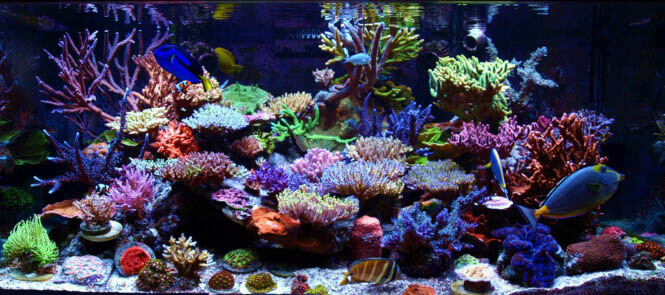
What Should you get for an LPS-Dominant Reef Tank?
LPS corals can be seemingly insatiable in their hunger sometimes.
Since they are such big eaters, it’s important to choose something that will actually satisfy them.
Here’s what food to feed to your LPS corals:
For LPS coral food you want something that provides a lot of different nutrients and there are a few products out there that provide it in spades. For targeted feeding, check out the Coral Frenzy pellets. They pack a lot of punch and your LPS coral will thank you for it. Ingredients-wise, they really are among the best. Adding something like the Red Sea Reef Energy Supplements can help as well, as they create a balanced nutritional environment for your LPS to thrive in.
Here’s a photo of a reef aquarium that’s heavy on LPS corals to help your imagination:
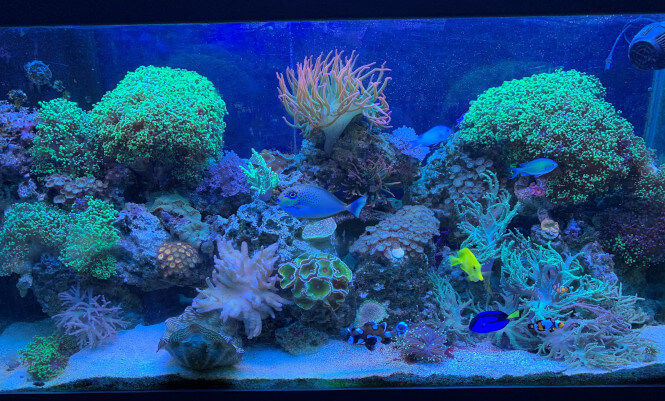
Don’t Forget to Test Your Water for Overnutrification
Additional nutrients in the water can lead to disastrous consequences fairly quickly if you aren’t careful.
If you notice extended bouts of dense cloudiness or green cropping up, hold back on your feeding and test the water.
There’s a good chance there’s plenty of food in the water already.
What else do you need for optimal growth?
Obviously, to maximize the growth potential of your corals you’d want to ensure they are getting everything they need.
The algae organisms that form part of your corals through a symbiotic relationship are called zooxanthellae.
They photosynthesize energy from light and convert it into beneficial substances that help corals grow and survive.
Knowing the right light spectrum that triggers that response will have a tremendous impact on your reef husbandry.
You’ll also need to nail the right kind of light source in relation to water penetration and the depth of your saltwater aquarium.
Simply put, you’ll need to get your hands on the best aquarium lights for your corals. This way they can develop healthy, colorful, and growing. The link leads to my guide on that and you can visit it if you’re in the middle of your research for a new reef tank.
FAQs
What is the best one for feeding soft corals?
In the wild, most soft corals like zoanthids and gorgonians, feed on nutritionally-rich phytoplankton and tiny larvae of invertebrates. Phytoplankton is basically floating algae.
The best food for this type of corals would be the one that closely resembles the nutritional composition of phytoplankton and tiny invertebrates. A healthy mix of algae and invertebrate protein works well in that case.
What is the best one for better coral polyps?
Corals with small polyps like SPS corals and zoanthids benefit the most from a mix of phytoplankton and small invertebrates. The best coral food for them would be the one that has these as its main components.
What is the best one for reef tank beginners?
If you’re a beginner in feeding aquarium corals you’d want coral food that does not cloud up the water and is easy to dose in the tank. Other than that you should look for coral foods that offer the right nutritional composition for the types of corals you keep.
What is the best one for LPS corals?
LPS corals react best to foods that contain a mix of zooplankton creatures. These types of corals use their tentacles to catch such small floating creatures. So the best food for LPS corals should have plenty of invertebrate protein for them to react well to it.
My Final Thoughts
In my experience, so far, research goes a long way in caring for corals.
You can’t expect to squeeze the maximum potential for color and growth out of your reef tank if you’re not doing your due diligence.
Making sure you understand how these animals operate, be it LPS or SPS, helps a ton in figuring out how to care for them properly.
It can be frustrating at first, but it’s very rewarding to watch these beautiful creatures grow once the proper conditions are met.
Feeding your coral properly, and trying to give them only the best foods, is a great step in the direction of a thriving reef tank.

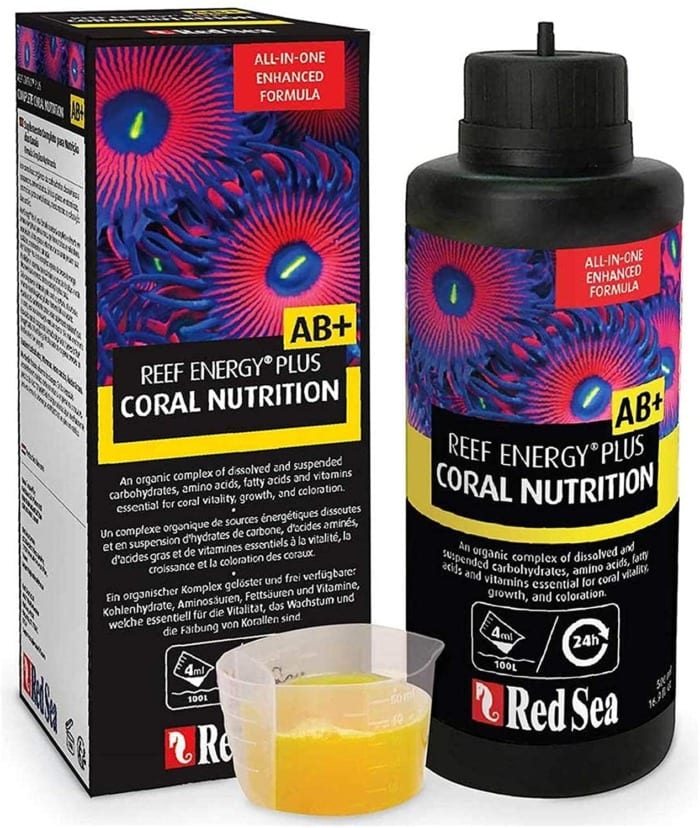
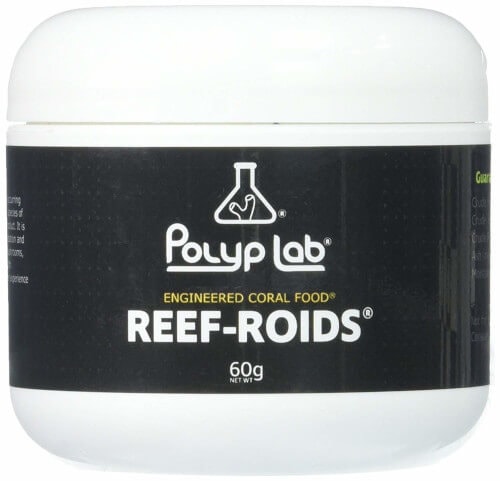
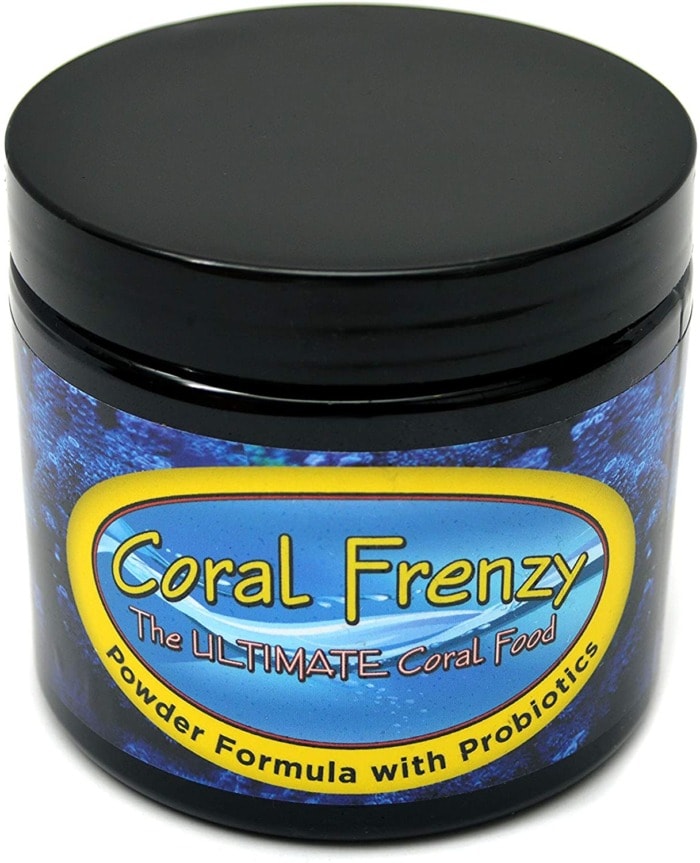
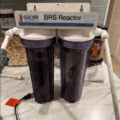
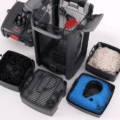


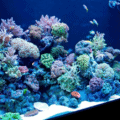
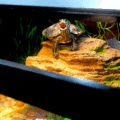
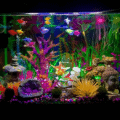
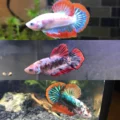
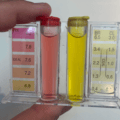
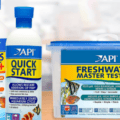
Great write up! Thanks for your time!
Thanks, Jesse,
I appreciate it!
All the best to you.